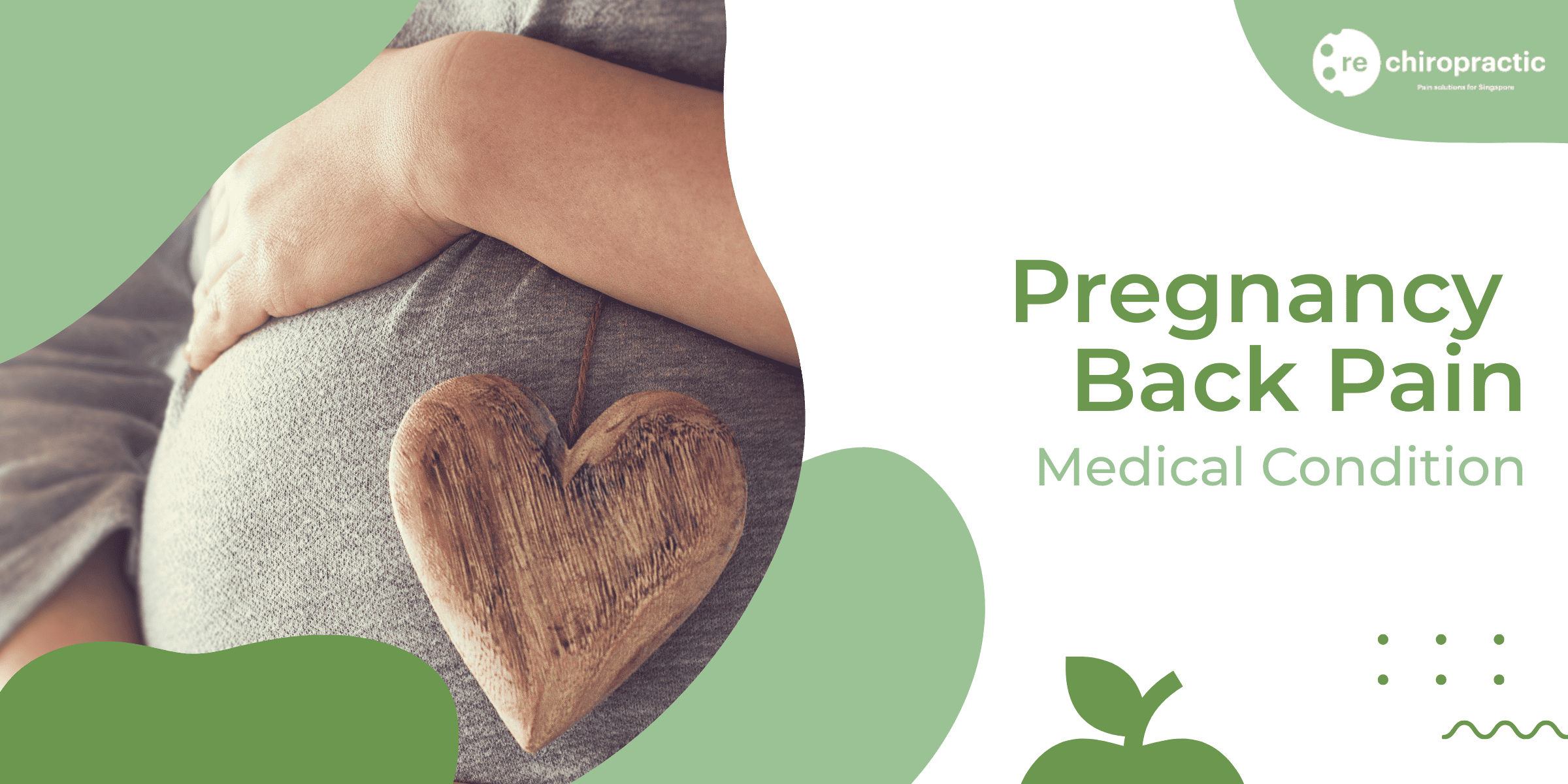
Pregnancy-Related Back Pain
Pregnancy is a beautiful and transformative time in a woman’s life. However, it can also bring about various physical discomforts, one of which is pregnancy-related back pain. As the name suggests, this condition refers to the pain experienced in the back during pregnancy. It is a common complaint among expectant mothers, affecting approximately 50-70% of pregnant women.
Pregnancy-related back pain can manifest in different ways, ranging from mild discomfort to severe pain. It typically occurs in the lower back, but can also radiate to the hips, buttocks, and even down the legs. The intensity and frequency of the pain can vary from woman to woman, and may worsen as the pregnancy progresses.
There are several factors that contribute to the development of pregnancy-related back pain. As the baby grows, the center of gravity shifts forward, placing increased stress on the back. Hormonal changes during pregnancy, particularly the release of relaxin, can also loosen the ligaments and joints in the pelvic area, leading to instability and pain. Additionally, the expansion of the uterus can cause postural changes and strain the back muscles.
While pregnancy-related back pain is a common occurrence, certain risk factors may increase the likelihood of experiencing this condition. These include a history of back pain prior to pregnancy, a higher body mass index (BMI), poor posture, and a physically demanding job.
Symptoms & Different Stages of Pregnancy-Related Back Pain
As the body undergoes significant changes to accommodate the growing baby, the spine and surrounding muscles can experience strain and discomfort. Understanding the symptoms and different stages of this condition is crucial in seeking appropriate care and relief.
- Early Stage: During the first trimester, hormonal changes and the body’s preparation for pregnancy can lead to mild back pain. It is often described as a dull ache or stiffness in the lower back.
- Middle Stage: As the pregnancy progresses, the weight of the growing baby puts additional strain on the back. This can result in more pronounced discomfort, characterized by aching, soreness, or muscle spasms in the lower back and hips.
- Late Stage: In the third trimester, the baby’s size and position can further contribute to back pain. The pressure on the spine and pelvis may cause sharp, shooting pains or radiating discomfort down the legs.
While pregnancy-related back pain is common and often manageable, it is important to be aware of when it may require medical attention. If you experience any of the following symptoms, it is advisable to consult with a healthcare professional:
- Severe or persistent pain that does not improve with rest or self-care measures.
- Pain accompanied by numbness, tingling, or weakness in the legs.
- Difficulty walking or standing due to intense pain.
- Pain accompanied by fever or other systemic symptoms.
- Pain that is progressively worsening or interfering with daily activities.
Most Common Causes of Pregnancy-Related Back Pain
Understanding the typical causes of pregnancy-related back pain is crucial in managing and alleviating this discomfort.
- Weight gain: As the pregnancy progresses, a woman’s body naturally gains weight to support the growing baby. This additional weight places extra stress on the spine and supporting muscles, leading to back pain.
- Postural changes: As the baby grows, the center of gravity shifts forward, causing changes in posture. This altered posture can strain the back muscles and result in pain.
- Hormonal changes: During pregnancy, the body releases a hormone called relaxin. This hormone helps to relax the ligaments in the pelvic area to prepare for childbirth. Unfortunately, it can also affect other joints and ligaments, including those in the back, leading to increased vulnerability to pain and discomfort.
- Changes in the spine and pelvis: As the baby grows, the spine and pelvis undergo significant changes to accommodate the developing fetus. These changes can cause misalignment, muscle imbalances, and increased pressure on the nerves, resulting in back pain.
- Stress and emotional factors: Pregnancy can be an emotionally challenging time, and stress can manifest physically as back pain. Hormonal changes and increased sensitivity can exacerbate the effects of stress on the body.
How bad can pregnancy-related back pain get if left untreated?
- Increased discomfort and pain: If pregnancy-related back pain is left untreated, the discomfort and pain experienced by the expectant mother can intensify over time. This can make it challenging for her to perform daily activities and may even affect her ability to get a good night’s sleep.
- Reduced mobility: As the condition progresses, the expectant mother may find it increasingly difficult to move around freely. This can limit her ability to perform tasks such as bending, lifting, or even walking comfortably.
- Impact on quality of life: Pregnancy-related back pain can significantly impact a woman’s overall quality of life. The constant pain and discomfort can lead to increased stress, fatigue, and a decreased ability to enjoy daily activities.
- Compromised posture: As the pain worsens, the expectant mother may unintentionally adopt poor postural habits to alleviate discomfort. This can lead to further strain on the back and potentially contribute to the development of other musculoskeletal issues.
- Emotional distress: Dealing with chronic pain can take a toll on an individual’s mental and emotional well-being. Untreated pregnancy-related back pain can lead to feelings of frustration, helplessness, and even depression.
- Impact on pregnancy experience: Pregnancy is a special time for expectant mothers, and untreated back pain can detract from this experience. It can make it challenging for them to fully enjoy the journey of pregnancy and may lead to increased stress and anxiety.
Chiropractic for Pregnancy-Related Back Pain
Chiropractic care can be a valuable resource for pregnant women experiencing back pain. With its focus on the musculoskeletal system and nervous system, chiropractic treatment offers a holistic approach to alleviate discomfort and improve overall well-being during pregnancy. Here are some ways chiropractic care can help:
- Spinal adjustments: Chiropractors use gentle and safe techniques to realign the spine and pelvis, which can alleviate pressure on the nerves and reduce pain. By restoring proper alignment, chiropractic adjustments can improve mobility and promote a healthier pregnancy.
- Soft tissue therapy: Chiropractors may also use soft tissue techniques such as massage or stretching to relieve muscle tension and promote relaxation. These therapies can help reduce inflammation and enhance blood circulation, providing relief from pregnancy-related back pain.
- Postural advice: Pregnancy often alters a woman’s posture, which can contribute to back pain. Chiropractors can provide guidance on maintaining proper posture and body mechanics during daily activities. By making simple adjustments to posture, pregnant women can minimize strain on their backs and reduce discomfort.
- Exercise and stretching: Chiropractors can recommend specific exercises and stretches that target the muscles supporting the spine. These exercises help strengthen the core muscles, improve flexibility, and provide stability, all of which can alleviate back pain and support a healthier pregnancy.
- Lifestyle modifications: Chiropractors may suggest modifications to daily activities and routines to reduce the risk of exacerbating back pain. This may include advice on proper lifting techniques, ergonomic adjustments, and recommendations for supportive devices like maternity belts or pillows.
It is important to note that chiropractic care for pregnancy-related back pain is safe and non-invasive. Chiropractors are trained to provide specialized care for pregnant women, taking into account the unique physiological and biomechanical changes that occur during pregnancy. However, it is always recommended to consult with your healthcare provider before starting any new treatment during pregnancy.
Self Help & Relief for Pregnancy-Related Back Pain
Experiencing back pain during pregnancy is not uncommon, and it can be quite uncomfortable for expectant mothers. While chiropractic care can provide effective relief, there are also some self-help methods that pregnant women can explore to alleviate their back pain. Here are some safe and practical techniques:
- Proper posture: Maintaining good posture is crucial for reducing strain on the back. Avoid slouching and try to sit and stand up straight. Use a chair with good back support, and consider using a cushion or pillow to support the lower back.
- Gentle exercises: Engaging in low-impact exercises can help strengthen the back muscles and improve flexibility. Consult with your healthcare provider or a prenatal fitness specialist to learn suitable exercises for pregnancy.
- Heat and cold therapy: Applying a heating pad or taking a warm bath can help relax the muscles and provide temporary relief. Conversely, using an ice pack wrapped in a cloth can help reduce inflammation and numb the area.
- Supportive footwear: Wearing shoes with proper arch support can help distribute weight evenly and reduce strain on the back. Avoid high heels and opt for comfortable, supportive footwear.
- Pregnancy pillows: Investing in a pregnancy pillow can offer support and help maintain proper spinal alignment while sleeping. These pillows are designed to provide comfort and alleviate pressure on the back and hips.
- Body mechanics: Be mindful of how you move and lift objects. Avoid heavy lifting whenever possible, and when you do need to lift something, remember to bend at the knees and use your legs rather than your back.
While these self-help methods can provide relief for pregnancy-related back pain, it’s important to note that every individual is different. What works for one person may not work for another. If your back pain persists or worsens, it’s always advisable to consult with a qualified chiropractor or healthcare professional who specializes in prenatal care. They can provide personalized guidance and recommend specific exercises or treatments tailored to your needs.
When to Seek Medical Help for Pregnancy-Related Back Pain
Experiencing back pain during pregnancy is not uncommon, but it is important to remember that it is not something you have to endure and live with. Seeking medical help is crucial to ensure a healthy and comfortable pregnancy. If you are experiencing any of the following symptoms, it is time to consult a healthcare professional:
1. Severe or persistent pain: If your back pain is severe and does not subside with rest or self-care measures, it is important to seek medical attention. Persistent pain can be a sign of an underlying issue that needs to be addressed.
2. Radiating pain: If your back pain radiates down your legs or causes numbness or tingling sensations, it could be a sign of a nerve compression or sciatica. These conditions require proper diagnosis and treatment.
3. Difficulty performing daily activities: If your back pain is interfering with your ability to perform routine activities such as walking, standing, or sitting for prolonged periods, it is time to seek help. Your healthcare provider can provide guidance on managing pain and improving mobility.
4. Impact on quality of life: If your back pain is significantly affecting your overall well-being, sleep, or mental health, it is important to reach out to a healthcare professional. They can provide strategies to alleviate pain and improve your quality of life during pregnancy.
Remember, pregnancy-related back pain is a common condition, but it is not something you have to endure. Seeking medical help from a chiropractor or other healthcare professional can provide you with the necessary support and treatment options to make your pregnancy journey more comfortable. Don’t hesitate to reach out for help and support.

Dr. Jenny Li is America trained chiropractor who specialises in sports injury, sports performance, and spinal health. She graduated from Palmer College of Chiropractic in United States, upon completion of the her post graduate program she practiced in Hong Kong and currently is practicing in Singapore.

